If you have been wondering as to who the ultimate winner in the Jojoba Oil vs Rosehip oil fiasco is, we think you need to go through an entire Jojoba Oil vs Rosehip oil guide that takes into account all the factors that should be considered while choosing between these two essential oils.
We will show you what makes Jojoba Oil vs Rosehip Oil different from each other, which one is better for your skin, hair and even which ones are best at treating acne or dry skin.
So, let’s start with a short introduction of each product before we take a look at the comparison and uses of Jojoba Oil vs Rosehip oil.
Contents
- 1 Jojoba Oil Vs Rosehip Oil: Background
- 2 Jojoba Oil Vs Rosehip Oil: Major Differences
- 3 What Do Rosehip And Jojoba Oil Do?
- 4 Rosehip Oil Vs Jojoba Oil: Which Is Better?
- 5 Can I Mix Jojoba Oil With Rosehip Oil For Face?
- 6 Jojoba Oil Vs Rosehip Oil For Skin
- 7 Jojoba Oil Vs Rosehip Oil For Hair
- 8 Jojoba Oil Vs Rosehip Oil For Acne Scars
- 9 Jojoba Oil Vs Rosehip Oil For Wrinkles
- 10 Jojoba Oil Vs Rosehip Oil Anti-Ageing Properties
- 11 Is Rosehip Oil Or Jojoba Oil Better For Oily Skin?
- 12 Jojoba Oil Vs Rosehip Oil For Dry Skin
- 13 Is Jojoba Oil Lighter Than Rosehip Oil?
- 14 Rosehip Oil For Scar Removal
- 15 Jojoba Oil Vs Rosehip Oil – Conclusion
Jojoba Oil Vs Rosehip Oil: Background
Jojoba Oil
It comes from shrub like plant known as Simmondsia Chinensis which mainly grows in California, Mexico and Paraguay.
The oil is extracted from jojoba seeds by cold compression method. It does not contain any impurities, preservatives or chemicals.
Related Video – How To Use Jojoba And Rosehip Oil
Rosehip Oil
It comes from seeds of rose bush and is obtained by cold pressing method.
It is high in vitamin C content which helps in improving the skin tone, texture and reduces scars. But it has limitation that it can’t be used during pregnancy or breastfeeding period.
Jojoba Oil Vs Rosehip Oil: Major Differences
Surprisingly, there are some similarities between these two oils too.
For example Jojoba oil is also known as “liquid wax” because of its chemical structure which is almost similar to that of human sebum without the fragrances that are added in most commercial products.
Rosehip seed oil is not quite popular but it has been used for centuries because of its rejuvenating properties.
It is also packed with vitamin C, Vitamin A and antioxidants which stimulate collagen production.
However, the differences between these oils are way clearer and intense for you to easily differentiate among the two.
Below, we are covering some important aspects that lay the foundation for a stronger comparison under the Jojoba Oil Vs Rosehip Oil umbrella:
1. Texture And Feel
Jojoba oil is a gooey liquid that gets solidified when refrigerated with extremely small molecular size.
It does not have feel of its own and it easily spreads on the skin surface without making it greasy.
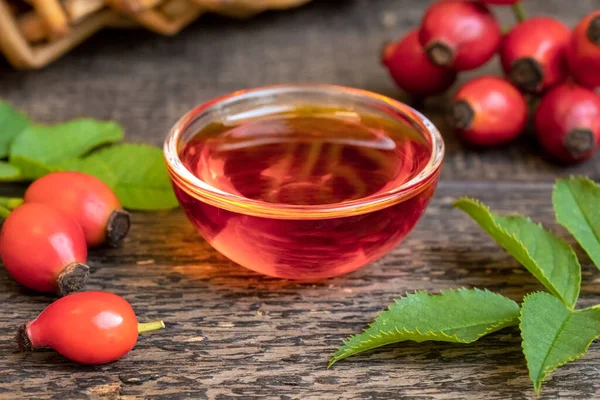
Rosehip oil has light orange color that resembles jaundice but there are different hues available in market that ranges from vibrant orange to greenish yellow.
Its consistency is also very lightweight but can feel greasy if applied in excess amount.
2. Scent And Flavour
Jojoba oil does not have its own smell or flavour, it has subtle nutty scent which makes it almost odorless and tasteless.
It easily absorbs into skin without leaving behind any oily residue on the skin surface.
Rosehip oil has distinct smell of its own which resembles burnt rubber tires with recognizable citrus taste that might be too harsh for some users who are used to mild fragrance products.
3. Healing Properties
Both oils have excellent healing properties but again they are different in nature because of which they are commonly used for different purposes.
Jojoba oil has regenerative abilities that help the skin to heal faster while retaining moisture and preventing dryness along with moisturizing it without leaving behind any greasiness.
Rosehip oil is commonly used to reduce stretch marks, scars, wrinkles and acne on face which shows its ability to rejuvenate skin cells by stimulating new collagen production.
4. Anti-Aging Abilities
As mentioned above both oils have excellent anti-aging properties but their ingredients are drastically different making them suitable for different purposes only.
Jojoba oil has antioxidant properties that reduce the ageing process, prevents skin from sun damage and helps in removing fine lines and wrinkles.
Rosehip oil is used to prevent rapid aging signs by removing dead skin cells, reducing inflammation and preventing photoaging of skin after excessive exposure to UV rays.
5. Hair Care Abilities
Jojoba oil has numerous benefits for hair, but it can’t be applied directly because of its sticky nature which makes it unsuitable for scalp massages etc.
It has been found that regular application on scalp can help in growing new healthy hair instead of falling or breaking old ones because of its excellent anti-inflammatory abilities that reduce dandruff and other problems related to scalp health.
Coming to the Jojoba Oil vs Rosehip oil fiasco, Rosehip seed oil can be directly applied over the scalp in various ways like massages etc.
because of its light consistency and fast absorption abilities that make it an excellent carrier oil for other essential oils too.
It is perfect for conditioning hair, preventing split ends, nourishing scalp and promoting new hair growth.
6. Compatible Oils
Both the oils have been used by tradition healers along with fruit pulp or leaves to improve their healing properties which further proves that they can be safely mixed with other natural ingredients without any side effects.
Jojoba oil is rich in vitamin E so it can be mixed with other carrier oils to increase their effectiveness while rosehip oil does not have this advantage but since there are no contraindications available regarding its mixing capabilities this disadvantage might turn out to be a wise choice too.
7. Side Effects
While both oils have excellent properties to fight against various skin diseases, illnesses and problems there are some side effects associated with it too although they are very rare because of its natural origin and chemical composition.
Jojoba oil might cause allergic reactions in some users who suffer from nut allergies especially when used undiluted on the skin surface while rosehip oil is a rich source of vitamin A which is why it should be completely removed from the diet of pregnant women or nursing mothers to prevent developmental health complications in newborn babies.
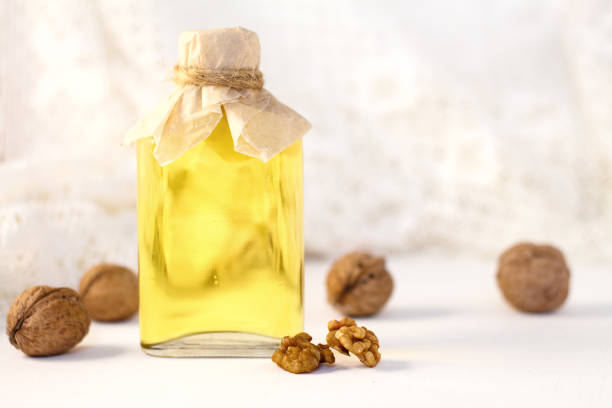
8. Availability And Price
While both oils are readily available online and in nearby markets they both have different rates associated with them.
This can be considered to be a huge advantage for rosehip oil because of its less than half price compared to the Jojoba oil rate.
What Do Rosehip And Jojoba Oil Do?
Another important point in any Jojoba Oil vs Rosehip oil guide has to be the discussion on what do these oils do.
Jojoba oil has numerous benefits for hair but it can’t be applied directly because of its sticky nature which makes it unsuitable for scalp massages etc.
It has been found that regular application on scalp can help in growing new healthy hair instead of falling or breaking old ones because of its excellent anti-inflammatory abilities that reduce dandruff and other problems related to scalp health.
Rosehip seed oil can be directly applied over the scalp in various ways like massages etc.
because of its light consistency and fast absorption abilities that make it an excellent carrier oil for other essential oils too.
It is perfect for conditioning hair, preventing split ends, nourishing scalp and promoting new hair growth.
Rosehip Oil Vs Jojoba Oil: Which Is Better?
Both the oils have been used by tradition healers along with fruit pulp or leaves to improve their healing properties which further proves that they can be safely mixed with other natural ingredients without any side effects.
Jojoba oil is rich in vitamin E so it can be mixed with other carrier oils to increase their effectiveness while rosehip oil does not have this advantage but since there are no contraindications available regarding its mixing capabilities this disadvantage might turn out to be a wise choice too.
Can I Mix Jojoba Oil With Rosehip Oil For Face?
While both oils have excellent properties to fight against various skin diseases, illnesses and problems there are some side effects associated with it too although they are very rare because of its natural origin and chemical composition.
Jojoba oil might cause allergic reactions in some users who suffer from nut allergies especially when used undiluted on the skin surface while rosehip oil is a rich source of vitamin A which is why it should be completely removed from the diet of pregnant women or nursing mothers to prevent developmental health complications in newborn babies.
Jojoba Oil Vs Rosehip Oil For Skin
Both oils are known for their excellent skin care abilities which make them an inseparable part of many beauty regimes all over the world but there are some significant differences between these two that should be taken into consideration before choosing either one or mixing both together in order to get maximum benefits without any side effects.
Rosehip oil is a rich source of omega-3 and omega-6 fatty acids that nourish the skin from deep within to give an excellent temporary relief from dryness but if used alone it might become a reason for increased acne outbreaks too.
Jojoba oil comes with anti-inflammatory, antibacterial and noncomedogenic properties which make it an effective remedy for many skin problems like acne, infected pores, skin inflammations etc.
It has been found that regular application on the skin provides protection from sun damage which makes both oils perfect for summer season in terms of preventing tanning and other associated side effects caused by strong UV radiations.
Jojoba Oil Vs Rosehip Oil For Hair
Both these oils are used for hair care but serve different purposes.
Jojoba oil is perfect for conditioning, nourishing and preventing split ends whereas rosehip seed oil has excellent healing abilities with no side effects that make it perfect for hair masks, massages, etc.
Jojoba Oil Vs Rosehip Oil For Acne Scars
Both oils are not usually recommended for acne prone skin because their antibacterial and anti-inflammatory abilities can cause more harm than good in this particular case by further increasing the rate of acne outbreaks.
This is why, they should be mixed together before application with other carrier oils to reduce their concentration a bit and make them a safe solution for acne scars too.
Jojoba Oil Vs Rosehip Oil For Wrinkles
Both oils are considered excellent for skin care, which makes them perfect for reducing early aging signs like wrinkles and fine lines caused by sun damage and other reasons.
They slow down the rate of collagen depletion, increase skin elasticity and provide antioxidant protection from free radicals to give a younger looking skin without any side effects.
Jojoba Oil Vs Rosehip Oil Anti-Ageing Properties
Both oils can be applied on the skin around eyes to reduce early aging signs like wrinkles and fine lines because of their antioxidant, moisturizing and anti-inflammatory abilities that help in removing dark circles too.
They protect the sensitive skin around eyes from strong UV radiations as well as help in lightening it for a brighter, younger looking and wrinkle free skin.
Is Rosehip Oil Or Jojoba Oil Better For Oily Skin?
It is recommended to avoid using either of these oils on skin that is already oily because they might further increase the secretion of sebum and make the skin condition worse.
Jojoba Oil Vs Rosehip Oil For Dry Skin
Rosehip oil can be mixed with other carrier oils like coconut or sweet almond before application to reduce its concentration and give a moisturizing effect to the skin.
It is a good remedy for dry, red and itchy skin because of its emollient abilities that reduce flaking and irritation caused by extreme dryness.
Is Jojoba Oil Lighter Than Rosehip Oil?
Jojoba oil is virtually colorless and odorless which make it a perfect base for both men and women to mix with other fragrances to create an exclusive aroma.
It can be mixed with a variety of essential oils to make your own custom perfume that lasts all day long without causing allergies or any unwanted side effects.
Rosehip Oil For Scar Removal
Rosehip oil is considered a wonderful remedy for scars and stretch marks because of its deep moisturizing abilities.
It penetrates the skin quickly and provides essential nutrients required to boost collagen production that fills up the scar tissue with young looking skin.
Rosehips also contain an excellent source of vitamin A that helps in lightening old or new scars to make them look less noticeable over time.
Jojoba Oil Vs Rosehip Oil – Conclusion
Both oils are excellent for skin care and can be mixed with other carrier oils before application to give the best results.
However, rosehips contain vitamin A that reduces scars while jojoba oil has antibacterial abilities that are ideal for acne prone skin.
Rosehip oil also has moisturizing and natural emollient abilities that make it perfect for dry skin, whereas jojoba oil is lighter than rosehip oil and can be used to create an exclusive natural perfume.
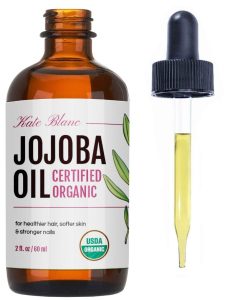
![30 Best Jojoba Oil Shampoo [Reviewed] 30 Best Jojoba Oil Shampoo [Reviewed]](https://theoilvirtue.com/wp-content/uploads/2022/02/J·R·LIGGETTS-All-Natural-Shampoo-Bar-Jojoba-And-Peppermint-300x300.jpg)

![20 Best Jojoba Oil Shave Oil [Reviewed] 20 Best Jojoba Oil Shave Oil [Reviewed]](https://theoilvirtue.com/wp-content/uploads/2022/02/The-Man-Company-100-Natural-Beard-Oil-For-Men-With-Almond-Oil-Thyme-Argan-And-Jojoba-Oil-300x300.jpg)
![15 Best Jojoba Oil Body Oil [Reviewed] 15 Best Jojoba Oil Body Oil [Reviewed]](https://theoilvirtue.com/wp-content/uploads/2022/02/Jojoba-Oil-By-Leven-Rose-Pure-Cold-Pressed-Organic-Unrefined-Moisturizer-For-Skin-Hair-Body-Nails-And-Cuticles-300x300.jpg)
![12 Best Jojoba Carrier Oils [REVIEWED] 12 Best Jojoba Carrier Oils [REVIEWED]](https://theoilvirtue.com/wp-content/uploads/2022/02/Cliganic-USDA-Organic-Jojoba-Oil-100-Pure-Natural-Cold-Pressed-Unrefined-Hexane-Free-Oil-For-Hair-Face-Base-Carrier-Oil-244x300.jpg)
![15 Best Jojoba Oil Hair Oil [REVIEWED] 15 Best Jojoba Oil Hair Oil [REVIEWED]](https://theoilvirtue.com/wp-content/uploads/2022/02/Cliganic-USDA-Organic-Jojoba-Oil-100-Pure-Natural-Cold-Pressed-Unrefined-Hexane-Free-Oil-For-Hair-Face-243x300.jpg)




![10 Best Jojoba Oil Gallon [Reviewed] 10 Best Jojoba Oil Gallon [Reviewed]](https://theoilvirtue.com/wp-content/uploads/2022/02/Cliganic-Jojoba-Oil-Non-GMO-Bulk-Gallon-128oz-100-Pure-Natural-Cold-Pressed-Unrefined-Hexane-Free-Oil-For-Hair-Face-167x300.jpg)

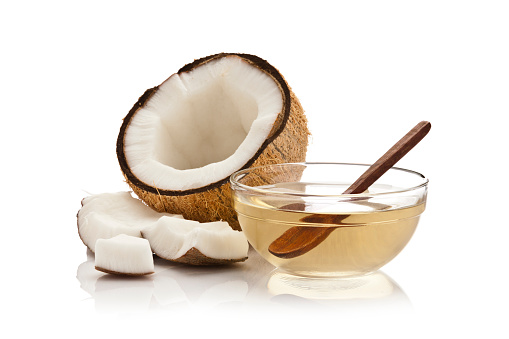
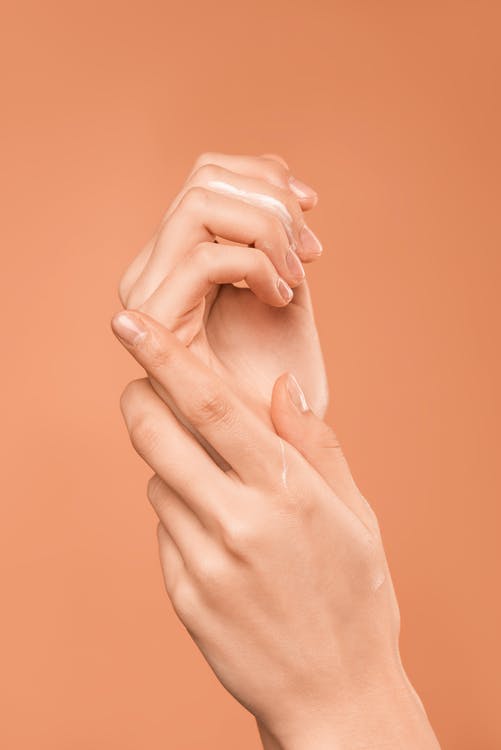
![18 Best Jojoba Oil Soap [Reviewed] 18 Best Jojoba Oil Soap [Reviewed]](https://theoilvirtue.com/wp-content/uploads/2022/02/Cove-Castile-Soap-Unscented-Organic-Argan-Jojoba-And-Hemp-Oils-228x300.jpg)